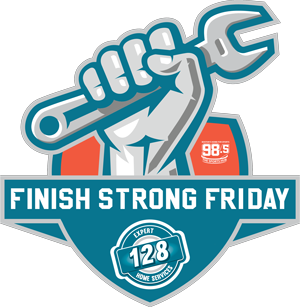For some homeowners, having a new boiler installed can be stressful, especially if they’ve been dealing with ongoing boiler issues for a significant amount of time.
They worry about things that can go wrong during the installation, not to mention the question of whether the new boiler will work properly and deliver the energy savings the manufacturer promised.
At 128 Plumbing, we eliminate stress and anxiety from your boiler installation. When you choose us, you choose experts who know the process inside out, so let’s run through what happens during a typical boiler installation so you can be prepared and not have to do any worrying.
The Home Inspection Before a Boiler Installation
When we arrive at your home to install your new boiler, there’s work to be done before you can get to the actual installation.
We have both plumbers and HVAC techs who will be involved in the process, and the first thing they’ll do is inspect your home to make sure we’re installing the right size boiler.
Part of what we’ll do is called a heat load calculation. This leads to a set of numbers that will help us make sure your new boiler will deliver enough heat to keep your home warm and cozy, and it also helps us predict and evaluate the actual energy efficiency numbers you’ll get once the boiler is installed.
We’ll also assess the location of your new boiler. Sometimes we know this in advance from our preliminary phone calls when we evaluate your situation, but many times there are shifts and changes we need to make once we see the actual layout of your home and your basement.
We also need to assess the condition of your existing heating system, then take a look at what’s involved in connecting your new boiler to your power source, which can be electrical, natural gas, and so on.
How Long Will It Take to Install Your New Boiler?
We get this question all the time, and the truth is there’s no set answer. We can give you a ballpark estimate based on the preliminary information you give us, but we’ll know more once we’ve done our initial exam.
Some boiler installations are simple, and if this is the case we can have your new boiler up and running in a matter of hours or on the same day.
But the simple fact is that some boiler installations are more complex. We may need to refit some pipes to accommodate your new boiler, and sometimes the process of removing your old boiler isn’t as simple as it looks.
There are also safety issues involved in the process, and obviously those get top priority, regardless of the projected timeline.
Ensuring Energy Efficiency for Your New Boiler
Many homeowners don’t realize the importance of checking the energy efficiency numbers when it comes to installing a new boiler.
We know that some manufacturers have a tendency to promise the world when it comes to these numbers, but we want to make sure you get what you were promised.
This is part of the reason we may need to reconfigure your pipes. Pipes can be responsible for a considerable amount of heat loss, especially if they’re older, so we may decide to replace some of them if that’s the case.
The key number in all of this is the AFUE rating. It stands for Annualized Fuel Utilization Efficiency, and while that may sound like a mouthful, but it’s actually a simply ratio of the percentage of heat produced by the boiler for every dollar you spend on fuel.
Some boiler manufacturers will claim a 100-percent AFUE numbers, but in the real world that’s rarely possible. It is part of the reason we analyze the condition of you pipes, though, because we want to you get as close to that 100 percent efficiency as possible.
Beyond that, what it really means is that what we do will be designed to get you as close as possible to the AFUE number provided by the manufacturer.
Regardless of what we do, we’ll always be transparent when it comes to the process. You’ll get an accurate reasonable estimate before we arrive to install your new boiler, and if we do have to deviate from that, you’ll know why, what we’re going to do, and what it’s going to cost if it changes our estimate.
The Power Source for Your New Boiler
Another important step we’ll take when we install your boiler is to connect it with your power source. This isn’t as simple as doing a hookup and throwing a switch; if you’re getting a natural gas boiler, for example, there are obviously safety issues in getting the connection right.
We’ll make sure this is done correctly, and we’ll test for leaks once it’s done. In addition, we’ll make sure the gas pressure meets the local code specifications in your town and across the state as a whole, so you’ll have the peace of mind that comes with knowing that’s been done properly.
Previous Heating System Issues and Your New Boiler
One of the things we occasionally encounter during a boiler installation is shoddy work that’s been done by another company.
This can play a huge role in how effectively your boiler can operate, and we sometimes have to spend some time fixing any mistakes or haphazard work that may have been done.
Our approach to these scenarios is simple—the right way is the 128 way. We have great plumbers, HVAC techs and electricians who frequently work together as part of your install team, so regardless of what comes up, we’re prepared to handle it.
After Your Boiler Installation is Done
So what happens after we’re done? Well, we’ll check and verify the system, of course, and we’ll go over all the work we’ve done with you.
There’s a good chance we’ll recommend that you get on one of our maintenance and service plans, as these can save you a huge amount of money over time with your new boiler.
To get these benefits, call us at (888) 419-4233, or you can use (781) 670-3261. We’ll answer your questions and schedule you for service.
You can also go to 128Plumbing.com and start a live chat, and we have some great blogs and articles there to help educate you about your boiler, how it works, and what you need to do to keep it running at peak efficiency.


